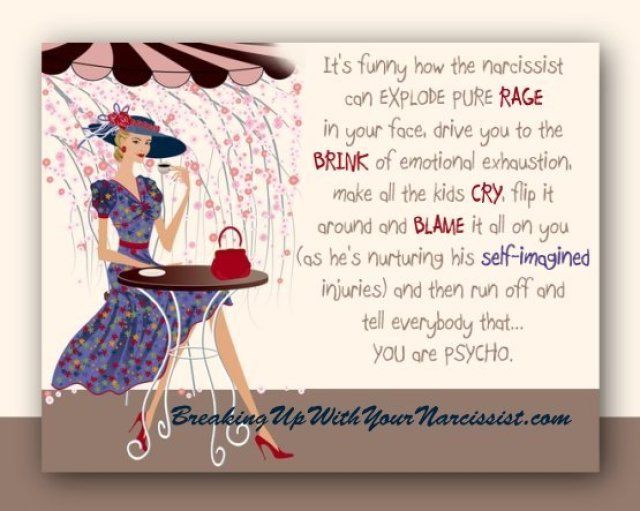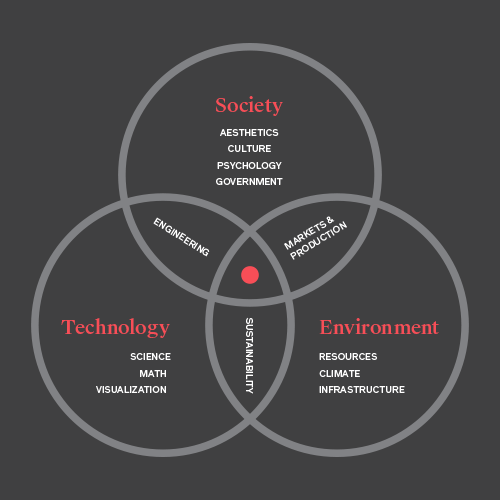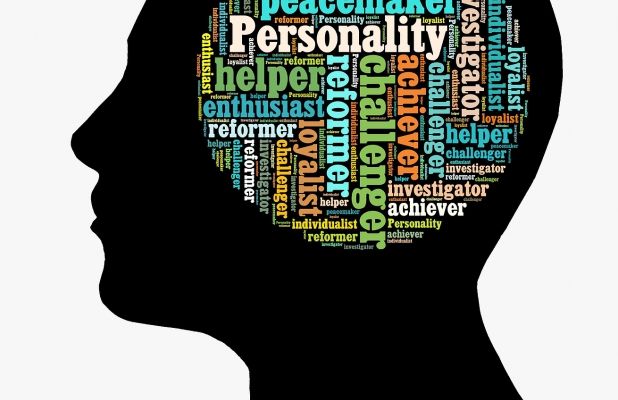5 early warning signs you re with a narcissist
5 Early Warning Signs You're With a Narcissist
At the beginning of April this year, I was tapped by the Huffington Post Live team for a discussion on narcissism. I happily agreed to appear, for a number of reasons, not the least of which is that narcissism happens to be one of my favorite subjects.
Early in my training, I had the pleasure of working with one of the foremost authorities on narcissism in our field, and in part because of that experience, I went on to work with quite a few clients who'd been diagnosed with narcissistic personality disorder. That's where I learned that the formal diagnostic label hardly does justice to the richness and complexity of this condition. The most glaring problems are easy to spot -- the apparent absence of even a shred of empathy, the grandiose plans and posturing, the rage at being called out on the slightest of imperfections or normal human missteps -- but if you get too hung up on the obvious traits, you can easily miss the subtle (and often more common) features that allow a narcissist to sneak into your life and wreak havoc.
bigstock photos
Just ask Tina Swithin, who went on to write a book about surviving her experience with a man who clearly meets criteria for NPD (and very likely, a few other diagnoses). To her lovestruck eyes, her soon-to-be husband seemed more like a prince charming than the callous, deceitful spendthrift he later proved to be. Looking back, Tina explains, there were signs of trouble from the start, but they were far from obvious at the time. In real life, the most dangerous villains rarely advertise their malevolence.
So what are we to do? How do we protect ourselves from narcissists if they're so adept at slipping into our lives unnoticed?
I shared some of my answers to that question in our conversation, and I encourage you to watch it. But there were a few I didn't get to, and others I didn't have the chance to describe in depth, so I thought I'd take the opportunity to revisit the topic here. Tread carefully if you catch a glimpse of any of these subtler signs:
1) Projected Feelings of Insecurity: I don't mean that narcissists see insecurity everywhere. I'm talking about a different kind of projection altogether, akin to playing hot potato with a sense of smallness and deficiency. Narcissists say and do things, subtle or obvious, that make you feel less smart, less accomplished, less competent. It's as if they're saying, "I don't want to feel this insecure and small; here, you take the feelings." Picture the boss who questions your methods after their own decision derails an important project, the date who frequently claims not to understand what you've said, even when you've been perfectly clear, or the friend who always damns you with faint praise ("Pretty good job this time!"). Remember the saying: "Don't knock your neighbor's porch light out to make yours shine brighter." Well, the narcissist loves to knock out your lights to seem brighter by comparison.
I'm talking about a different kind of projection altogether, akin to playing hot potato with a sense of smallness and deficiency. Narcissists say and do things, subtle or obvious, that make you feel less smart, less accomplished, less competent. It's as if they're saying, "I don't want to feel this insecure and small; here, you take the feelings." Picture the boss who questions your methods after their own decision derails an important project, the date who frequently claims not to understand what you've said, even when you've been perfectly clear, or the friend who always damns you with faint praise ("Pretty good job this time!"). Remember the saying: "Don't knock your neighbor's porch light out to make yours shine brighter." Well, the narcissist loves to knock out your lights to seem brighter by comparison.
2) Emotion-phobia: Feelings are a natural consequence of being human, and we tend to have lots of them in the course of normal interactions. But the very fact of having a feeling in the presence of another person suggests you can be touched emotionally by friends, family, partners, and even the occasional tragedy or failure. Narcissists abhor feeling influenced in any significant way. It challenges their sense of perfect autonomy; to admit to a feeling of any kind suggests they can be affected by someone or something outside of them. So they often change the subject when feelings come up, especially their own, and as quick as they might be to anger, it's often like pulling teeth to get them to admit that they've reached the boiling point -- even when they're in the midst of the most terrifying tirade.
Narcissists abhor feeling influenced in any significant way. It challenges their sense of perfect autonomy; to admit to a feeling of any kind suggests they can be affected by someone or something outside of them. So they often change the subject when feelings come up, especially their own, and as quick as they might be to anger, it's often like pulling teeth to get them to admit that they've reached the boiling point -- even when they're in the midst of the most terrifying tirade.
3) A Fragmented Family Story: Narcissism seems to be born of neglect and abuse, both of which are notorious for creating an insecure attachment style (for more on attachment, see here and here). But the very fact that narcissists, for all their posturing, are deeply insecure, also gives us an easy way to spot them. Insecurely attached people can't talk coherently about their family and childhood; their early memories are confused, contradictory, and riddled with gaps.
Narcissists often give themselves away precisely because their childhood story makes no sense, and the most common myth they carry around is the perfect family story. If your date sings their praises for their exalted family but the reasons for their panegyric seem vague or discursive, look out. The devil is in the details, as they say -- and very likely, that's why you're not hearing them.
If your date sings their praises for their exalted family but the reasons for their panegyric seem vague or discursive, look out. The devil is in the details, as they say -- and very likely, that's why you're not hearing them.
4) Idol Worship: Another common narcissistic tendency you might be less familiar with is the habit of putting people on pedestals. The logic goes a bit like this: "If I find someone perfect to be close to, maybe some of their perfection will rub off on me, and I'll become perfect by association." The fact that no one can be perfect is usually lost on the idol-worshipping narcissist -- at least until they discover, as they inevitably do, that their idol has clay feet. And stand back once that happens. Few experiences can prepare you for the vitriol of a suddenly disappointed narcissist. Look out for any pressure to conform to an image of perfection, no matter how lovely or magical the compulsive flattery might feel.
5) A High Need for Control: For the same reason narcissists often loathe the subject of feelings, they can't stand to be at the mercy of other people's preferences; it reminds them that they aren't invulnerable or completely independent -- that, in fact, they might have to ask for what they want -- and even worse, people may not feel like meeting the request.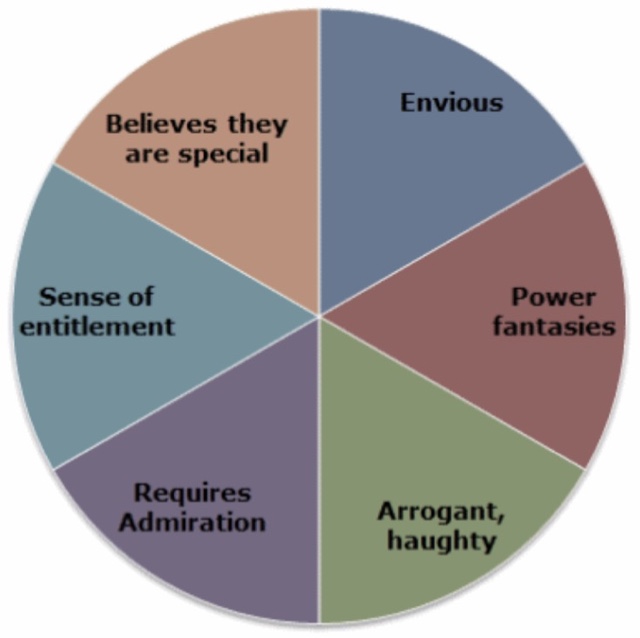
Rather than express needs or preferences themselves, they often arrange events (and maneuver people) to orchestrate the outcomes they desire. In the extreme form, this can manifest as abusive, controlling behaviors. Think of the man who berates his wife when dinner isn't ready as soon as he comes home. He lashes out precisely because at that very moment, he's forced to acknowledge that he depends on his wife, something he'd rather avoid.
But as with most of these red flags, the efforts at control are often far subtler than outright abuse. Be on the look out for anyone who leaves you feeling nervous about approaching certain topics or sharing your own preferences. Narcissists have a way of making choices feel off-limits without expressing any anger at all -- a disapproving wince, a last-minute call to preempt the plans, chronic lateness whenever you're in charge of arranging a night together. It's more like a war of attrition on your will than an outright assault on your freedom.
None of these signs, in isolation, proves that you're with a narcissist. But if you see a lot of them, it's best to sit up and take notice. They're all way of dodging vulnerability, and that's a narcissist's favorite tactic.
copyright Dr. Craig Malkin 2013. All rights reserved.
Detecting the Early Signs of a Narcissist
Is someone in your life a true narcissist, or simply self-obsessed? Watch for these initial signs of narcissism to tell the difference.
Share on PinterestDesign by Kristen Hom; Photography by Maksym Panchuk/EyeEm/Getty ImagesEverything is about them — what they want, how great they are, how jealous others are of them. A narcissist is at the center of their own world and tries to be the center of yours, too.
This behavior can be off-putting, making it difficult to be around or maintain a relationship with a narcissist.
But true narcissists — not just self-obsessed folks — have a real, diagnosable condition called narcissistic personality disorder (NPD).
People with NPD aren’t necessarily just “bad” or “manipulative” people. Many with this condition can sense that their behavior is repelling others but truly don’t know what they’re doing to garner that reaction.
Consider bringing compassion to the table, but also know that you don’t have to stay in a relationship that’s toxic, abusive, or just plain unfulfilling.
If you have an inkling that someone in your life is a narcissist, watching for these early signs of NPD can inform your next steps.
A narcissist is a person who lives with a personality disorder called narcissistic personality disorder (NPD).
People with NPD have a grandiose sense of self. They typically feel like they’re important — and often more important than others. They commonly seek out attention and aim to be the center of everyone’s attention, often putting themselves before others.
But at its core, NPD is defined by a lack of empathy for others.
“A narcissist’s behavior can run the gamut between excessive self-importance and arrogance and entitlement, to an almost childish need for praise and accolades,” says psychotherapist Gina Moffa, LCSW.
This behavior can make it difficult to maintain healthy relationships. Narcissism is often thought of as simply a “character flaw,” adding to the stigma around the condition.
It’s actually a diagnosable personality disorder — not reflective of the person’s values or choices.
A lot of people exhibit a few of the symptoms of narcissism but wouldn’t necessarily qualify for a diagnosis of NPD.
Someone needs to meet five of the nine criteria in the Diagnostic and Statistical Manual of Mental Disorders, 5th Edition (DSM-5) to be clinically diagnosed with NPD. These criteria include:
- overblown sense of self-importance
- fantasies of unlimited success, brilliance, and more
- belief that they’re special and should only associate with high status people
- need for excessive admiration
- sense of entitlement
- exploitation of others for their own benefit
- lack empathy
- envy of others or belief that others are envious of them
- arrogant and haughty behavior
Diagnosis criteria require these symptoms to remain consistent over time and show up in most domains of life.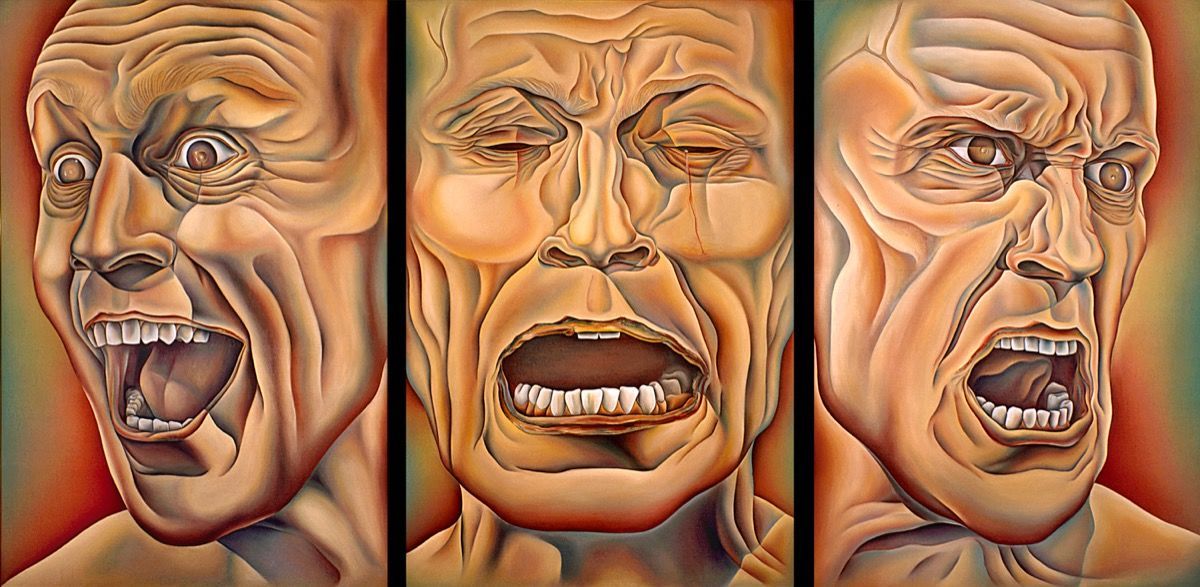 These symptoms impair a person’s ability to function in society.
These symptoms impair a person’s ability to function in society.
Only mental health professionals are suited to diagnose a person with NPD. While it can be tricky to diagnose at first, Moffa says that NPD becomes more clear during therapy.
NPD can be typically linked to someone’s upbringing. According to a 2014 study, a person with narcissism is likely to have been raised by parents who:
- believed that their child was better than others
- were abusive
- neglected them
How can you distinguish between someone who’s self-centered and someone with NPD? Many adults might exhibit a few of these signs, but a narcissist who lives with NPD will exhibit many.
They talk about themselves — a lot
If a person constantly talks about themselves — their life, their accomplishments, how superior they are to others — and never asks about you or even lets you get a word in, take note.
They constantly seek praiseWhile a narcissist likes to tell everyone how great and important they are, they truly crave constant praise and may seek it out.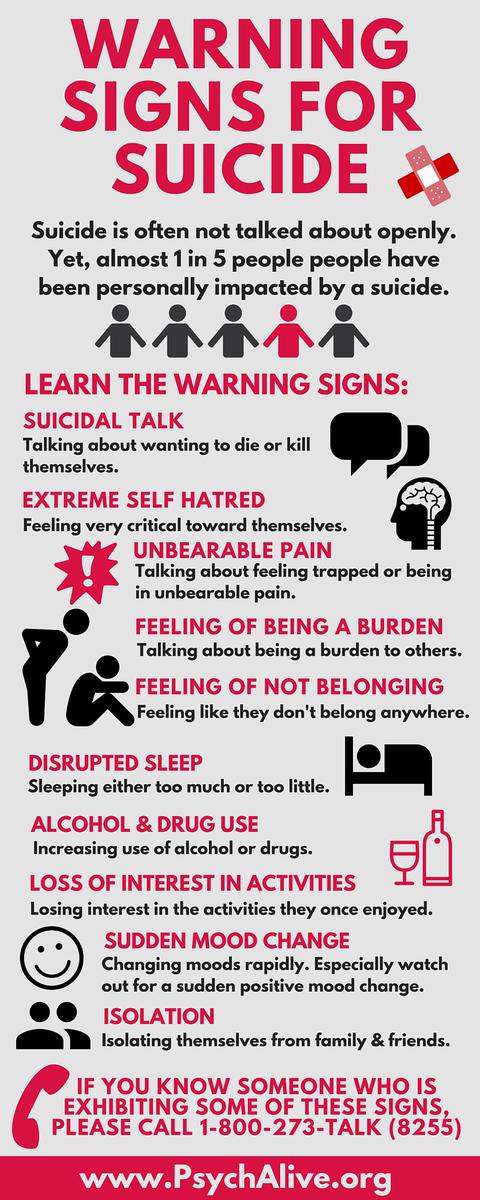
“At their core, narcissists are insecure, fragile humans who do truly just need to be loved and adored. They just need it more than the average person, but the need itself is real, pervasive, and damaging,” Moffa says.
They make you feel like gold (at first)If you start dating a narcissist, they might make you feel like the admired and desired person in the world. But eventually, their attention will fall away from you, making you feel confused and rejected.
Called love bombing, this behavior often stems from a narcissist’s inability to form healthy attachments and the need to maintain the upper hand in relationships. People with NPD are often terrified of being abandoned.
“When you’re in good graces with a narcissist (i.e., meeting their endless need for attention and importance), a narcissist can make you feel like you are a part of their world, and shower you with attention. When you fall out of good graces with a narcissist, they will make you feel powerless, weak, and their anger can feel like a weapon,” says Moffa.
Your needs are always second fiddle to the needs of a narcissist.
Because everything revolves around them, they’ll find ways to make your needs seem less important than theirs. They can be masters at manipulation by giving in to one of your requests, only so that they can use it against you later.
They’re jealous of you and othersIn a 2020 study, researchers asked current partners, former partners, and family members of narcissists to describe them and their interactions with them.
Many participants identified the narcissist in their life as having jealous behaviors toward others, as well as beliefs that others were jealous of them. One participant even reported that her husband, who was living with NPD, was jealous of the bond she had with their new baby.
If someone’s constantly talking about their good looks and money — and seem convinced that others are jealous of them — they might be a narcissist. This often is the result of deep insecurities and reliance on praise for self-worth that come with NPD.
This often is the result of deep insecurities and reliance on praise for self-worth that come with NPD.
Aside from the negative traits, participants in the same study described their relatives and partners living with narcissism as being:
- charismatic
- fun-loving
- attentive to others in social situations
While a narcissist can be charming to get the attention they deeply need, Moffa says, “these behavioral traits can be manipulative and even abusive at times.”
This deep vulnerability and suspicion of possible abandonment that drives narcissists to charm in public also lead to them lashing out in anger, according to a 2015 study.
Narcissism can be a strong risk factor for aggression and violent behavior, according to a 2021 literature review.
You may be wondering whether a person with this condition can change. The answer is yes, there’s hope of change with therapy.
“Although it can be very hard to admit that you have a personality disorder that is looked upon negatively, with the right therapeutic relationship, which must consist of a stable, consistent alliance, there can be healing of some self-sabotaging and self-destructive patterns of a narcissist,” she says.
Through therapy, Moffa says that a person with NPD can:
- heal old wounds related to family dynamics
- cope with distressing emotions
- find ways to create more effective communication patterns
With consistent therapy over time, symptoms of NPD can improve. People living with NPD and those around them can look forward to more satisfying, balanced relationships.
If you think that you have a narcissist in your life, it can be difficult to know how to maintain a relationship with them.
“In their essence, narcissists suffer from extreme self-consciousness, so it makes it hard to deliver constructive feedback of any kind without being attacked in return.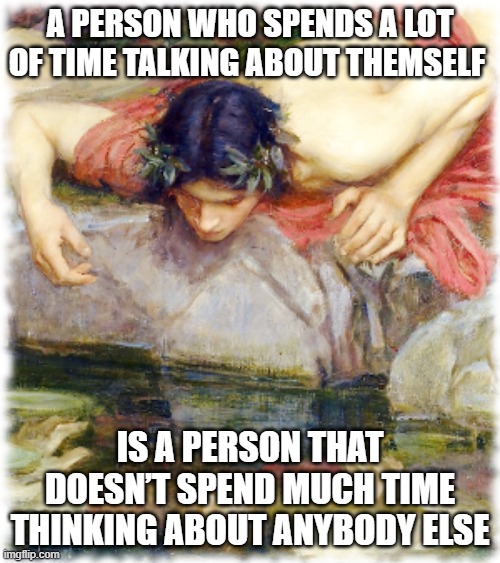 This makes it very tricky to navigate the personality of a narcissist, especially since many times, they are unable (or unwilling) to see their own behavior as negative,” says Moffa.
This makes it very tricky to navigate the personality of a narcissist, especially since many times, they are unable (or unwilling) to see their own behavior as negative,” says Moffa.
Often, the only way to cope is to set strong boundaries or cut off communication with them.
If you need help in coming to terms with ending a relationship, talking to a therapist can help. Check out Psych Central’s guide to seeking mental health care for help.
5 signs that you are in love with a narcissist
- Photo
- Gpointstudio
Selfish behavior can sometimes be characteristic of even the most kind and sympathetic people, and we have no reason not to sometimes enter into their position. But what if your closest person is a narcissist by nature, and you refuse to see it and do nothing but treat all his whims with understanding?
Melanie Tonia Evans, author of the special psychological recovery program Narcissistic Abuse Recovery, is sure that the signs of narcissism in a person are very difficult to recognize.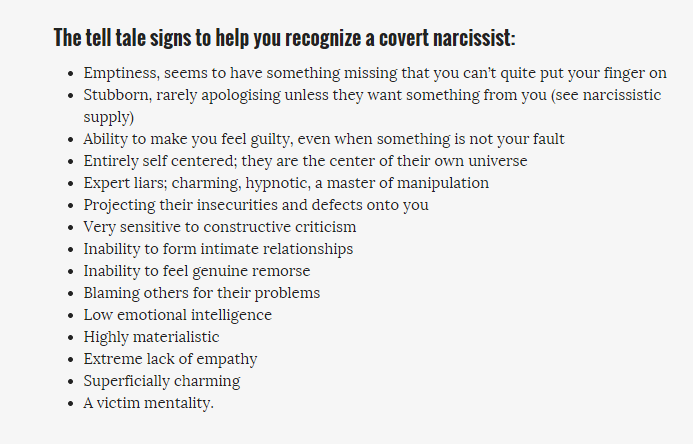 At least until you face a really serious attack.
At least until you face a really serious attack.
“Most of us tend to think that narcissists are just self-absorbed, over-inflated egos, in love with themselves. But nothing could be further from the truth than such a belief. Many do not even realize that they are dealing with people who, without feeling remorse or guilt for their actions, do everything possible to satisfy their ego, thirst for money, attention, sex, property. With no thought at all about how their actions might affect others,” Evans explains in his book You Can Thrive After Narcissistic Abuse.
Do you have doubts about your partner? There are five main signs of narcissistic personality disorder.
Emotional instability
Despite the popular belief that a narcissist is preoccupied with his beloved, in reality their mask of complacency can be very fragile. The fact is that they are actually insecure and overreact to triggers that most adults simply ignore. They are extremely sensitive, so typically the narcissist's anger and rage is a reaction to a threat to their fragile self-esteem (this type of threat is also known as "narcissistic injury").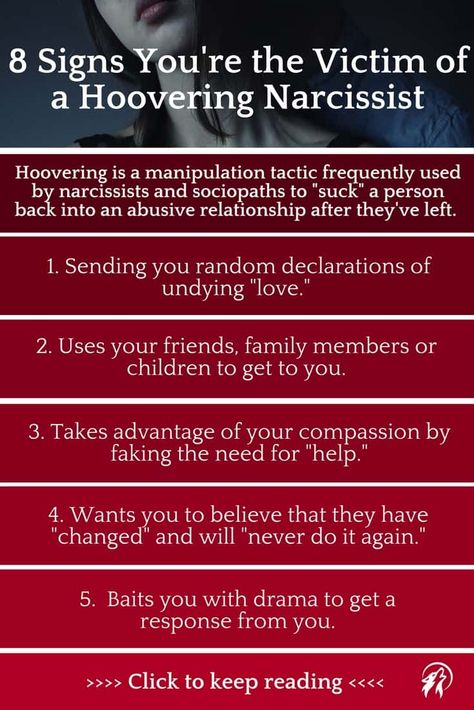
You've probably experienced something like this: you talk admiringly about a colleague and suddenly you're accused of being unfaithful. Perhaps he will even suspect that you are completely sexually attracted to the person you are talking about. If the narcissist does not get enough attention in the group, he may create a problem situation or defiantly leave, only to later humiliate all those who dare to draw attention to themselves ( read also : "Othello Syndrome: when jealousy becomes a mania" ).
Vulnerability can be so severe that occasional fits of jealousy and envy become difficult to level.
"Everyone owes me" and other excessive claims
If you live with a narcissist, then most likely you quickly noticed his unreasonable demands. They believe that "everyone owes them", but the needs of everyone else are rarely taken into account. Self-admiration is part of the inner state of the narcissist, they believe that they deserve special treatment and preferences. Therefore, they do not hesitate to violate the boundaries of others, sometimes hiding behind a mask of flattery and feigned care ( read also : “He is a tyrant: 5 signs that your man is “breaking” you”).
Therefore, they do not hesitate to violate the boundaries of others, sometimes hiding behind a mask of flattery and feigned care ( read also : “He is a tyrant: 5 signs that your man is “breaking” you”).
At the heart of almost every narcissistic project is the desire to get the best part. And even if someone might get hurt, he doesn't care. Without any remorse, he will push anyone under the wheels of the bus, including his spouse and children. The demands of the narcissist extend widely into his life - he is deaf to your worries in everyday life, not to mention important things.
Arguing like a five-year-old child
One of the surest ways to identify a person's narcissistic disorder is to observe their way of conducting a discussion. It can be seen that the defense mechanisms of narcissists range from graceful manipulation to unceremonious violation of the established framework of behavior.
Evans lists the most popular expressions in the narcissist's arsenal: "You didn't let me finish," "Just because I didn't say what you wanted to hear," "You're the only person I'm having problems with.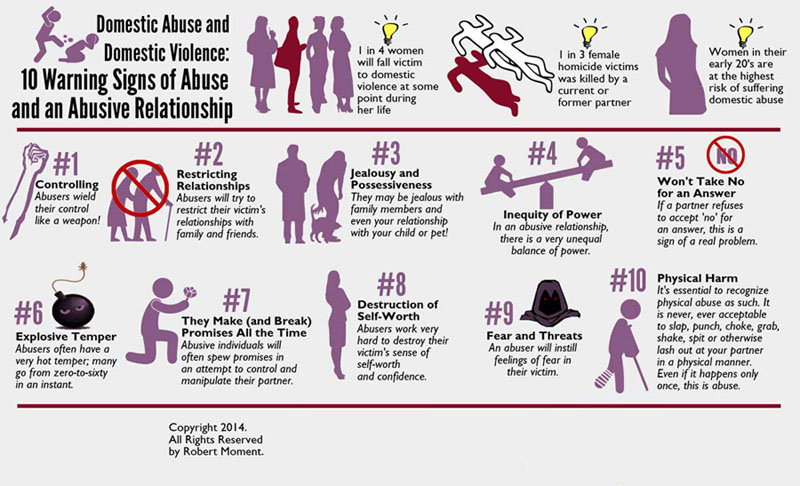 " During a discussion, you may feel anxious and even wonder if you are going crazy. You may feel like you're being fooled by constantly arguing with elementary concepts, or that you're arguing with an angry five-year-old who doesn't want to stick to the main topic.
" During a discussion, you may feel anxious and even wonder if you are going crazy. You may feel like you're being fooled by constantly arguing with elementary concepts, or that you're arguing with an angry five-year-old who doesn't want to stick to the main topic.
Pathological lies
The narcissist diligently creates a world of his self-deception, and lies are part of his personality. In all likelihood, from the very beginning, he will brag about fictional achievements in the past, complain about those who acted badly in relations with him (usually this is a gross projection and distortion of the behavior and actions of the narcissist himself).
They themselves believe in their lies and are often very convincing, attracting many gullible simpletons. According to Evans, an adult mature person cannot imagine why another adult would say terrible things about someone when in fact they are not. Especially when a person says it while looking into your eyes.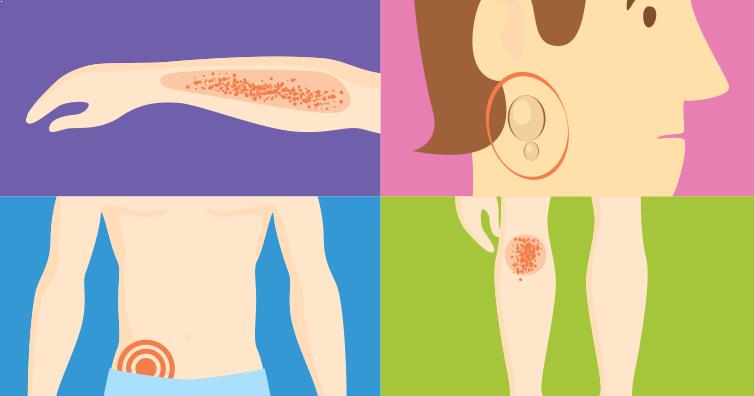
The habit of blaming others for their problems
The projection tactic is perhaps one of the most destructive in the narcissist's arsenal. They will easily blame you for what they do themselves. You will be cursed if you do a certain act, and they will also be cursed if you do not do it. Nothing you do will ever be good enough. Your actions for them are a personal insult or even a direct attack. And they will firmly stand on the fact that this is the reason for the problems in your relationship.
You will need
The book "Disarm the Narcissist", Behari V.T.
Advertising. OOO "Yandex"
Photo: Getty Images
Eva Zalina
how to recognize and what to do
Not everyone knows that narcissistic personality disorder is not at all the same as narcissistic personality disorder or high self-esteem. You should know well who a narcissist is and why he is dangerous.
Website editor
Tags:
Love and relationships
Relationship psychology
Mental disorders
Personality disorders
Getty images
If a guy posts too many selfies on his social media or constantly talks about himself on a first date, he's often called a narcissist. But you should not do this, because narcissistic personality disorder is a mental illness.
Signs of a narcissist
So don't confuse self-admiration with narcissistic personality disorder (NPD). The symptoms of the latter are as follows:
- overestimated sense of self-importance;
- excessive need for attention and admiration;
- inability to empathize;
- common relationship problems.

According to licensed psychotherapist Rebecca Wyler, NPD boils down to selfishness - the desire to get everything at the expense of others, as well as an inability to consider the feelings of other people. But remember, narcissistic personality disorder is not black and white. “Narcissism has its own spectrum,” says psychotherapist and author of The Self-Aware Parent, Fran Walvis.
9 official criteria for narcissistic personality disorder
The latest edition of the Diagnostic and Statistical Manual of Mental Disorders, the US nomenclature for mental disorders, lists nine criteria for NPD, but five of them are sufficient for clinical recognition of narcissism. This list includes:
- a grandiose sense of self-importance;
- preoccupation with fantasies of unlimited success, power, brilliance, beauty, or ideal love;
- a person's conviction that he is special and unique, the desire to deal only with high-ranking people and elite organizations and institutions;
- need for excessive admiration;
- feeling of being chosen;
- the tendency to exploit others in relationships, in other words, to use other people to achieve one's own goals;
- lack of empathy;
- a person's envy of others or the belief that everyone envy him;
- arrogant and haughty behavior.

But even knowing the official criteria does not always allow one to identify a narcissist. The hardest thing to notice NPD in a person with whom you are in a romantic relationship. On a date with someone we like, rarely do any of us think: “Wait a minute, is this guy suffering from narcissism?”
But at the same time, we all dream of a healthy and long-term relationship that will make both us and our partner happy. So read about how a male narcissist behaves when he is about to have an affair - this information will come in handy. Only a qualified specialist can make a diagnosis, but there are red flags that you should pay attention to.
Relationship with a narcissist: how people with NPD behave
If you see that any of the above are familiar to you, be careful!
1. Narcissus is charming... But only at first
Everything starts like in a fairy tale. He constantly texts you, in the first month he confesses his love, promises to buy a tram, makes joint plans, showers compliments, says that he has finally found his soul mate, and your meeting is fate. Experts call all this "love bombing".
He constantly texts you, in the first month he confesses his love, promises to buy a tram, makes joint plans, showers compliments, says that he has finally found his soul mate, and your meeting is fate. Experts call all this "love bombing".
“Narcissists believe that they are worthy of relationships with special people and only such women can appreciate them,” says psychotherapist Nedra Glover Tawwab. “But as soon as you do something that disappoints them, they may turn their backs on you.” And, most likely, you won't even know what you did wrong.
Wyler advises: if the guy is too persistent at first, be on your guard. Of course, each of us is pleased to feel unique and unique. But communication and mutual understanding between people are not born in a few days - they must be nurtured and developed. “If it seems like a man doesn’t know you enough to truly love you, he probably does,” Wyler says.
2. The narcissist talks at length about how wonderful he is
“Narcissists love to talk about their own great accomplishments and accomplishments,” says psychotherapist Jaclyn Krol. “They do it because they feel better and smarter than everyone else, and also because it makes them look more confident.” Clinical psychologist Dr. Angela Grace adds that narcissists often exaggerate their achievements and embellish their talents in order to gain admiration and adoration from others.
“They do it because they feel better and smarter than everyone else, and also because it makes them look more confident.” Clinical psychologist Dr. Angela Grace adds that narcissists often exaggerate their achievements and embellish their talents in order to gain admiration and adoration from others.
Narcissists tend to be too busy with themselves to listen to other people. This, according to Grace, will become a red flag: firstly, the guy with NPD will constantly talk about himself, and secondly, he will never discuss your interests and preferences. Pay attention: what happens if you try to tell something about your life? Is he asking questions, trying to find out more? Or just waiting for the moment to be the center of attention again?
3. The narcissist lacks empathy
An inability to understand the other person's feelings is one of the hallmarks of narcissists, Walvis says. Pay attention to how your boyfriend reacts when you tell that you had a bad day at work or you had a fight with your parents. Does he empathize or frankly bored when you say that you are angry or sad? According to Walvis, a lack of empathy is the most common reason why relationships with narcissists end up falling apart, whether it's romantic love or friendship.
Does he empathize or frankly bored when you say that you are angry or sad? According to Walvis, a lack of empathy is the most common reason why relationships with narcissists end up falling apart, whether it's romantic love or friendship.
4. Narcissists have no real friends
If you look closely at a narcissist, you will notice that around him there are only casual acquaintances, friends with whom he chats, and enemies. People with NPD tend to have no loved ones, especially those with whom they have known and maintained relationships for many years. Therefore, a narcissist may be offended if you want to communicate with your friends. It is likely that he will even try to make you feel guilty: for example, he will begin to say that you devote little time to him.
Ask yourself the following questions:
- How does your partner feel about someone they don't want anything from?
- Does he have old friends?
- Does he have a sworn enemy? If not, did he say that he would like to have one?
5.
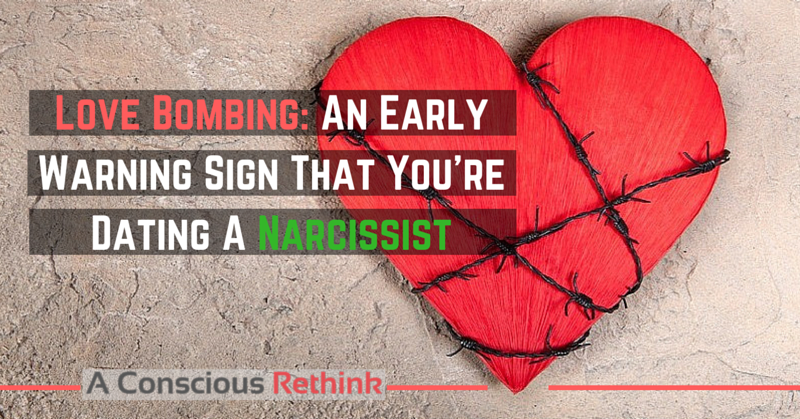 The narcissist feeds on your compliments
The narcissist feeds on your compliments It may seem that narcissists are very self-confident. But according to Tawwab, most people with NPD actually lack self-respect. “They need a lot of praise, and if you don’t give it, they will seek it. That's what you're for: to tell them how wonderful they are,” she says.
“Narcissists use other people—usually those who are highly empathetic—to nurture self-esteem. Because of their low self-esteem, narcissists' egos are easily hurt, and therefore their need for compliments is great,” adds Marriage and Family Psychotherapist Shirin Peykar.
Pay attention: self-confident people do not need constant confirmation of their importance from others. “A person with NPD needs to be praised, but he himself flourishes by humiliating others,” says Peykar. As Weilar aptly puts it, narcissists punish everyone around them for their lack of self-confidence.
6.
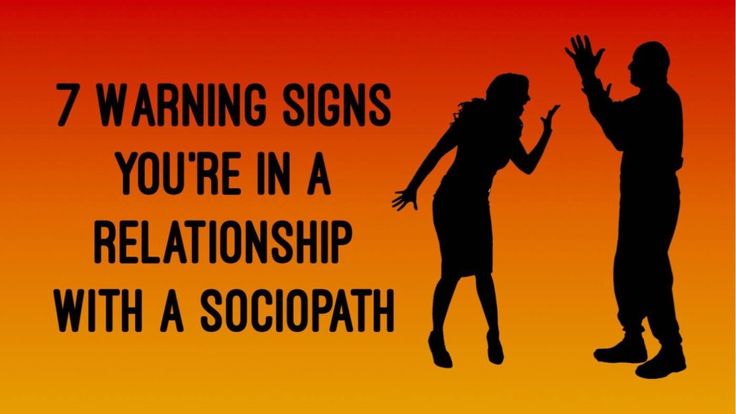 The narcissist constantly picks on you
The narcissist constantly picks on you At first it seems like a mild tease, but over time it becomes a constant background, and hairpins turn from good-natured to angry and rude. Suddenly, everything you do is subject to criticism, whether it's about choosing a profession or brushing your teeth.
“The goal of narcissists is to lower other people's self-esteem in order to raise their own, because it makes them feel powerful,” says Peykar. “They love reaction: it shows them that they have the power to influence the emotional state of another person.”
Pay attention: if your partner throws barbs when you have achieved something, then it's time to run. If a man says that your achievements are accidental or obtained through advantages, then there is a chance that you are dealing with a narcissist. “He wants you to remember that you are no better than him,” Tawwab explains.
7.
 The Narcissist Gaslights
The Narcissist Gaslights Gaslighting is a form of manipulation and emotional abuse that is a hallmark of narcissism. “Narcissists use gaslighting to make others doubt themselves. For them, this is a way to achieve superiority over others, ”explains Peykar.
You can read more about gaslighting here, but here are the signs that indicate that you have experienced it.
Signs that you are a victim of a narcissist and gaslighted:
- you no longer feel like the person you used to be;
- you have become more anxious and less confident;
- you often wonder if you are too sensitive;
- you feel like everything you do is wrong;
- when something goes wrong, you always think it's your fault;
- you often apologize;
- you feel something is wrong, but you don't know what;
- you constantly doubt that your answer to your partner is correct;
- you make excuses for your partner's behavior.

8. The narcissist thinks he is always right and never apologizes
Arguing with narcissists is impossible. “It will not be possible to reach a compromise with them. People with NPD don't see disagreements as disagreements. They just think they are teaching you some truth,” says Tavvab. Peykar thinks you might be dating a narcissist if you think your partner is:
- can't hear you;
- does not understand you;
- takes no part of the responsibility for the problem;
- never tries to compromise.
Weilar advises avoiding negotiations and arguments with narcissists. “People who suffer from NPD hate the lack of control and struggle. The less you resist, the less power you can give them over you, the better,” she says.
Since narcissists are sure that they are always right, they never "sink" to the point of apologizing - even in situations where they are clearly at fault.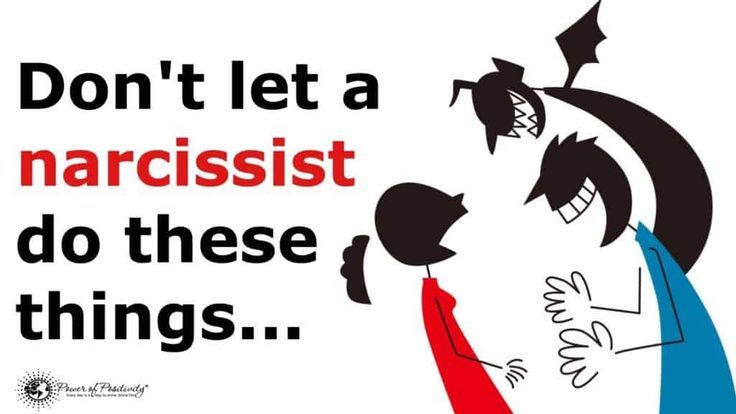 For example, your partner does not feel the need to say "sorry" if he was late for dinner and did not even call to warn about it, or canceled your joint plans at the last moment. Remember: normal people are able to understand that they did something wrong and apologize for it.
For example, your partner does not feel the need to say "sorry" if he was late for dinner and did not even call to warn about it, or canceled your joint plans at the last moment. Remember: normal people are able to understand that they did something wrong and apologize for it.
9. The narcissist does not want to be committed
The narcissist expects you to treat him like his partner and at the same time refuses you the same. You may notice how he flirts with someone, but if you talk about it as a sign of disrespect, you will be accused: “You made a storm in a glass of water, you are completely crazy!” But think about this: you deserve the same devotion that you give yourself.
10. The narcissist panics when you try to break up with him
Once you back off, the narcissist will do his best to get you back. “At first they may bombard you with love. They will say all the right things to convince you that they have changed,” warns Peykar. But very little time will pass, and it will become clear: you are still dealing with the same person.
But very little time will pass, and it will become clear: you are still dealing with the same person.
11. Realizing that everything is over, the narcissist loses his temper
The narcissist will do everything possible to hurt you for leaving him. “Their ego is so badly hurt that they feel only rage and hatred. They believe that only other people are to blame for everything, including the breakup,” says Peykar.
What will be the result? The narcissist may say bad things to you, immediately start dating someone else to make you jealous, or even try to "steal" friends. The reason, Tawwab says, is that a good reputation means everything to them, and they won't let anyone or anything ruin it.
Okay, I'm dating a narcissist. What to do?
So, you realized that you are in a relationship with a person who has NPD. He constantly criticizes you, humiliates you and emotionally exhausts you. Experts recommend the obvious way out - to move away from it.
Experts recommend the obvious way out - to move away from it.
Here's how to prepare for breaking up with a narcissist:
- Constantly remind yourself that you deserve better.
- Strengthen relationships with friends who support you.
- Gather loved ones around you who will help you critically assess reality.
- Convince your partner to go to therapy.
- See a psychotherapist yourself.
“You cannot change a person with narcissistic personality disorder or make them happy with your love. Don't change for him - that won't help either. He will never empathize with you, and you will always feel empty after interacting with them, says Grace. “Basically, you will never be enough for them, because they will never be enough for themselves.”
Grace thinks the best thing to do is end the relationship. At the same time, it is not worth explaining anything, much less giving a second, third or fourth chance.